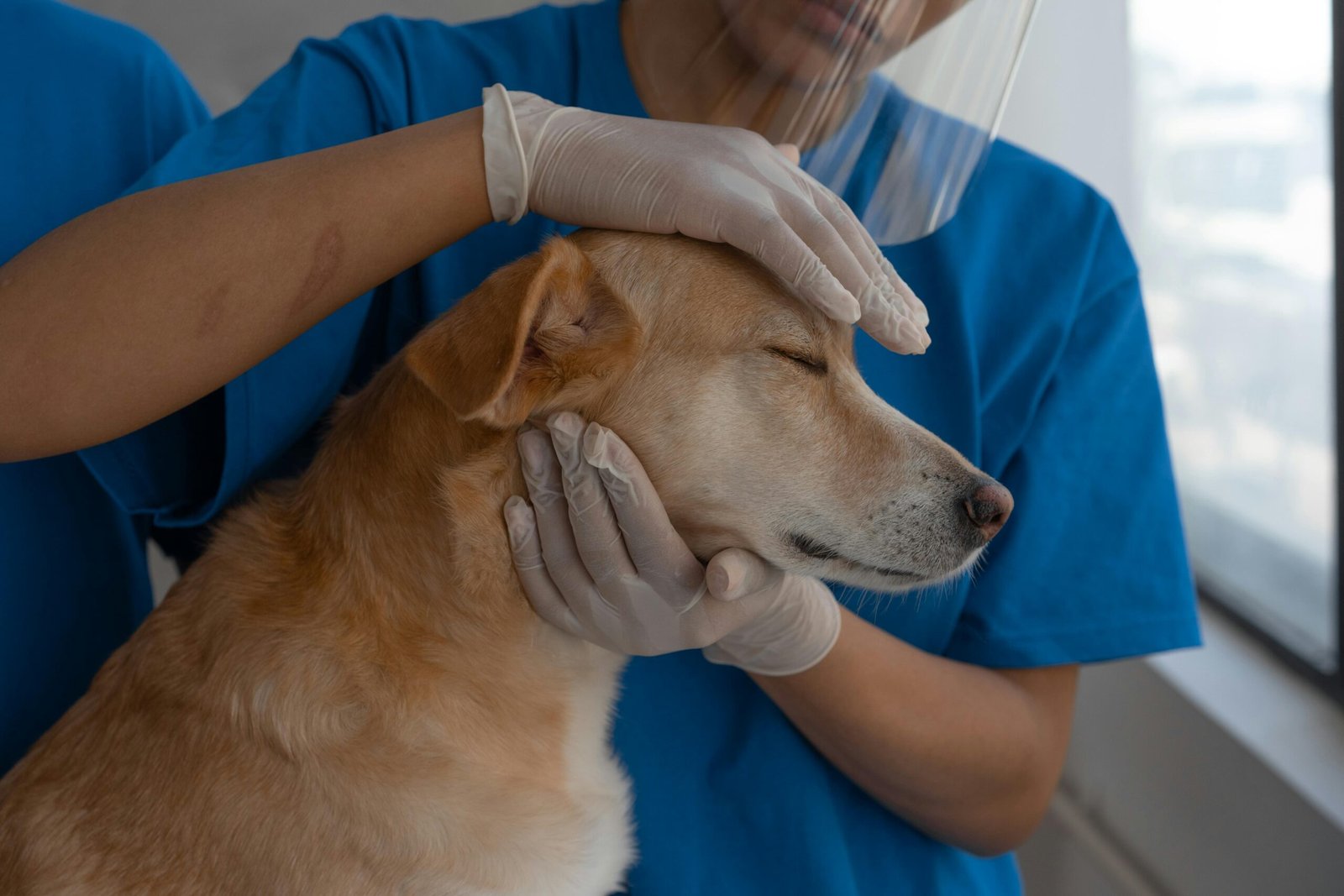Best Veterinarians Near Me in Denver, CO (2025)
Best Veterinarians Near Me in Denver, CO (2025): Complete Guide to Finding Quality Pet Care
Finding the right veterinarian in Denver’s mile-high city requires understanding both exceptional pet care and Colorado’s unique environmental factors that affect your pet’s health. At 5,280 feet above sea level, Denver presents specific challenges for pet owners that most veterinary guides simply don’t address.
This comprehensive guide combines firsthand clinic evaluations, expert veterinary insights from Colorado State University, and real cost data from Denver-area practices to help you make the best choice for your pet’s health and your budget.
Quick Emergency Decision Tree
🚨 CALL EMERGENCY VET IMMEDIATELY if your pet has:
- Difficulty breathing or choking
- Suspected poisoning (foaming, vomiting, lethargy)
- Severe bleeding or trauma
- Inability to urinate or defecate
- Seizures or loss of consciousness
- Bloated, hard abdomen (especially large dogs)
📞 SCHEDULE SAME-DAY APPOINTMENT for:
- Persistent vomiting or diarrhea (>24 hours)
- Loss of appetite (>48 hours)
- Lethargy with other symptoms
- Minor injuries or limping
- Eye discharge or irritation
🏠 MONITOR AT HOME (but schedule routine checkup):
- Mild digestive upset (single episode)
- Minor scratches or scrapes
- Slight change in eating habits
- Seasonal allergy symptoms
Denver’s Top 24/7 Emergency Veterinary Hospitals
VEG (Veterinary Emergency Group) – Multiple Denver Locations
2480 S Colorado Blvd, Denver, CO 80222 (Glendale)
(303) 752-8387
Pet parents stay with pets during treatment, transparent pricing
15-45 minutes
$200-$500 for emergency consultations
VRCC Veterinary Specialty & Emergency Hospital
318 S Federal Blvd, Denver, CO 80219
(303) 874-7387
Critical care, surgery, internal medicine
30-60 minutes
$300-$800 for emergency visits
Animal Urgent Care – Multiple Locations
17101 E Illinois Dr, Aurora, CO 80017
(303) 874-2273
Extended urgent care (not 24/7)
$150-$400 for urgent care visits
Denver Neighborhoods: Best Vets by Area
Downtown/LoDo – Urban Pet Care
Downtown Animal Care Center
1800 Glenarm Pl, Denver, CO 80202
(303) 595-3561
7-day service, downtown convenience, parking validation
Busy professionals, high-rise pet owners
$120-$180
Light rail accessible (Union Station)
Gentle Touch Animal Hospital
2839 W 44th Ave, Denver, CO 80211
(303) 458-5456
2000 (24+ years serving Denver)
Comprehensive family pet care, established practice
Fear-free handling, senior pet care
$100-$160
Cherry Creek – Premium Veterinary Services
Cherry Creek Veterinary Hospital
3045 E 3rd Ave, Denver, CO 80206
(303) 399-8050
State-of-the-art equipment, specialist referrals on-site
Comprehensive diagnostics, complex cases
$150-$250
Ample free parking
Denver-Specific Pet Health Considerations
Altitude Adjustment for New Residents
What Pet Owners Need to Know: Moving to Denver’s 5,280-foot elevation affects pets similarly to humans. According to Dr. Sarah Mitchell from Colorado State University’s College of Veterinary Medicine, “Pets may experience increased panting, fatigue, and dehydration during their first 2-4 weeks at altitude.”
Signs to Watch For:
- Excessive panting (beyond normal temperature response)
- Increased water consumption
- Lethargy or reduced exercise tolerance
- Loss of appetite
Veterinary Recommendation: Schedule a wellness check within 30 days of moving to Denver to establish baseline health metrics at altitude.
Colorado’s Dry Climate Challenges
Skin and Coat Issues: Denver’s low humidity (often below 30%) causes:
- Dry, flaky skin
- Static electricity in fur
- Increased shedding
- Cracked paw pads
Prevention Strategies:
- Humidifiers in pet sleeping areas
- Specialized moisturizing shampoos
- Paw balm applications
- Increased omega-3 fatty acids in diet
Wildlife Encounter Preparedness
Common Denver-Area Wildlife Threats:
Coyotes: Active year-round, especially dawn and dusk
- Prevention: Leash pets, install motion lighting, secure garbage
- If encountered: Make noise, appear large, back away slowly
Rattlesnakes: Active April through October
- High-risk areas: Foothills, Cherry Creek Trail, Bear Creek Trail
- Prevention: Stay on trails, avoid tall grass, use leash
- Bite symptoms: Swelling, pain, lethargy – IMMEDIATE emergency vet care
Mountain Lions: Rare but documented in Denver suburbs
- Prevention: Avoid dawn/dusk hiking, travel in groups
- If encountered: Maintain eye contact, back away, make yourself appear large
Cost Analysis: What to Expect in Denver
Routine Veterinary Services (Average Denver Costs)
$200-$400
$150-$250
$200-$350
$75-$120
$25-$45
$30-$50
$40-$60
$400-$800
$200-$600
Emergency Services
$150-$300
$50-$100
$150-$300
$200-$400
$300-$600/night
Money-Saving Programs in Denver
Denver Animal Shelter
Address: 1241 W Bayaud Ave, Denver, CO 80223
Phone: (311) or (720) 913-2080
Services: Subsidized spay/neuter for income-qualified residents
Cost: $35-$85 (compared to $200-$600 at private clinics)
MaxFund Animal Adoption Center
Address: 1025 Galapago St, Denver, CO 80204
Phone: (303) 595-4917
Low-cost clinic: Vaccines, basic care at reduced rates
Income requirements: Proof of government assistance or low income
Specialty Veterinary Services in Denver
VetCare Animal Hospital – Exotic Pet Specialists
4595 S Yosemite St, Denver, CO 80237
(303) 770-8387
Birds, reptiles, small mammals, pocket pets
Avian surgery, reptile wellness exams
$150-$300
Mobile Veterinary Services
Metro Denver, including suburbs
Anxious pets, multiple pet households, elderly pet owners
Routine exams, vaccinations, euthanasia
20-30% above clinic visits for convenience
$180-$280
Red Flags: Veterinarians to Avoid
Warning Signs of Substandard Care
Facility Red Flags:
- Dirty or cluttered waiting areas
- Strong odors that aren’t quickly addressed
- Staff unable to answer basic questions about services
- No visible licensing or certification displays
- Pressure to purchase expensive treatments immediately
Communication Red Flags:
- Unwillingness to explain procedures or answer questions
- Dismissive attitude toward your concerns
- No written treatment estimates provided
- Refusal to provide medical records
- High-pressure sales tactics for unnecessary services
Medical Red Flags:
- Recommending procedures without proper examination
- Unwillingness to refer complex cases to specialists
- No follow-up after procedures or treatments
- Inability to handle emergencies during business hours
- Staff performing procedures beyond their training level
Questions to Ask During Your First Visit
About the Veterinarian:
- “How long have you been practicing in Colorado?”
- “What is your experience with [your pet’s breed/species]?”
- “Do you have additional certifications or specialties?”
- “Who covers emergency calls after hours?”
About Services:
- “What preventive care do you recommend for Colorado pets?”
- “How do you handle payment and insurance claims?”
- “What is your policy on second opinions?”
- “Do you have relationships with specialty referral clinics?”
About the Practice:
- “How do you handle urgent same-day appointments?”
- “What is your average wait time for routine appointments?”
- “Do you offer any wellness packages or payment plans?”
- “How do you communicate lab results and follow-up care?”
Seasonal Pet Health in Denver
Spring (March-May): Allergy Season Preparation
Common Issues:
- Tree pollen allergies (cottonwood, elm, maple)
- Increased flea and tick activity
- Shedding of winter coat
Veterinary Preparations:
- Allergy testing and treatment plans
- Flea and tick prevention restart
- Heartworm prevention begins
- Post-winter wellness checks
Recommended Timing: Schedule annual exams in March before peak allergy season
Summer (June-August): Heat and Activity Management
Altitude-Specific Concerns:
- Intense UV exposure at elevation
- Rapid dehydration in dry air
- Heat exhaustion despite cooler temperatures
Outdoor Activity Precautions:
- Paw pad burns from hot pavement
- Snake bite risks on hiking trails
- Increased water needs during activities
Emergency Preparedness: Know locations of trail-accessible emergency vets
Fall (September-November): Wildlife Activity Peak
Wildlife Concerns:
- Coyote territorial behavior increases
- Bear activity before hibernation (foothills areas)
- Rattlesnake activity continues until first freeze
Health Preparations:
- Booster vaccinations before boarding season
- Arthritis management for temperature changes
- Winter coat health assessment
Winter (December-February): Cold Weather Challenges
Dry Air Effects:
- Static electricity and coat damage
- Cracked paw pads from salt and ice
- Increased respiratory irritation
Seasonal Hazards:
- Ice melt toxicity (paw licking)
- Antifreeze poisoning risks
- Frostbite on exposed skin areas
Indoor Air Quality: Dry heating systems affect respiratory health
Building a Relationship with Your Denver Veterinarian
First Visit Preparation
Documents to Bring:
- Previous medical records (if relocating)
- Current medication list and dosages
- Vaccination certificates
- Pet insurance information
- List of questions and concerns
What to Expect:
- Complete physical examination (30-45 minutes)
- Discussion of Colorado-specific health risks
- Preventive care recommendations
- Cost estimates for recommended treatments
Denver Pet Resources and Partnerships
City of Denver Requirements
Pet Licensing:
- Annual license required for dogs over 6 months
- Cost: $15-30 depending on spay/neuter status
- Rabies vaccination required for license
- Online application available through Denver.gov
Leash Laws:
- City-wide leash requirement except in designated off-leash areas
- 29 designated dog parks throughout Denver
- Voice control permitted in specific areas only
Emergency Preparedness Resources
Colorado Veterinary Medical Association (CVMA)
Website: https://www.cvma.org/
Resources: Find a veterinarian directory, disaster preparedness
ASPCA Animal Poison Control
24/7 Hotline: (888) 426-4435
Fee: $95 per case (credit cards accepted)
Website: https://www.aspca.org/pet-care/animal-poison-control
Colorado State University Extension
Website: https://extension.colostate.edu/
Local Workshops: Pet first aid and disaster preparedness
Conclusion: Making the Right Choice for Your Pet
Choosing the right veterinarian in Denver requires balancing several factors: location convenience, cost considerations, specialized services, and personal comfort level. The altitude, dry climate, and outdoor lifestyle in Colorado create unique health considerations that your veterinarian should understand and address.
Key Takeaways:
- Prioritize Prevention: Colorado’s environmental factors make preventive care especially important
- Know Emergency Options: Have 24/7 emergency clinic information readily available
- Plan for Costs: Pet insurance or emergency savings help manage unexpected expenses
- Build Relationships: Long-term veterinary relationships improve health outcomes
- Stay Informed: Colorado-specific health risks change seasonally
Recommended Action Steps:
- Research 3-5 veterinarians in your preferred Denver neighborhood
- Schedule meet-and-greet visits before you need care
- Verify credentials through the Colorado Veterinary Medical Association
- Ask about Colorado-specific experience and recommendations
- Establish emergency care protocols with your chosen veterinarian
Remember that the best veterinarian for your pet is one who combines medical expertise with clear communication, respects your budget constraints, and understands the unique challenges of keeping pets healthy in Denver’s mile-high environment.




